2021: a year of resilience and recrimination
It has been a year of punishment for most Australians – a year even tougher than 2020. But the catastrophe that started in China has become the ultimate signpost to a bigger story.
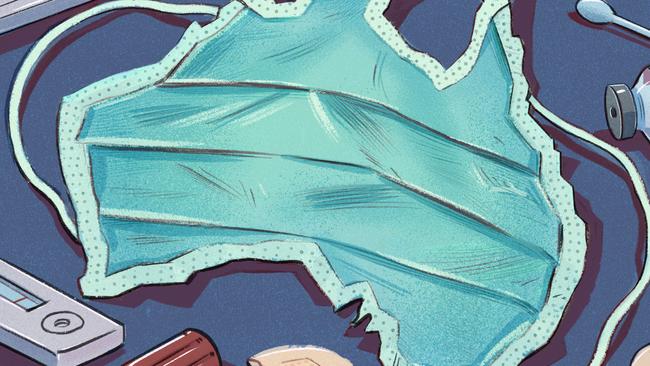
This has been one of the most extraordinary years in Australia’s history. Coupled with 2020, it has no parallel for the impact it has had on most of today’s Australians – a pandemic that originated in China has forced home lockdowns, border closures, testing and tracing regimes, job losses, business hardships and closures, separation from loves ones, mental stress and isolation.
Covid-19 brought suffering, heartbreak, courage and spiritual rethink in different measures. In public terms the story is captured in three words – resilience, results and recrimination. The narrative has been stoic resilience by the public; a world-leading Australian performance against the pandemic; and a bitter year of political warfare that compromised the nation, fractured the Australian federation, damaged the Morrison government and left fissures across the country.
The pandemic shaped our personal and public life in a way no other single event has dominated since World War II. It touched every household and business. But the impact was greater for the elderly who were vulnerable, the 75 per cent of people working in the private sector, and residents of Victoria and NSW who bore the brunt of the sickness and deaths.
Most of the Australian public displayed an astonishing forbearance before the imposed sacrifices, inviting a reassessment of the national character. The pandemic confirmed the tolerance of lockdowns, the death of the larrikin legend and rise of the responsible citizen ethos. There were degrees of angry protest but the main narrative was not public rebellion but the reverse – a concord of personal and community mutual interest.
The results have been remarkable in global terms, with Australia benefiting from its long-revered island status. With nearly 5.4 million deaths worldwide, Australia at the start of this week had suffered just more than 2150 deaths compared with more than 827,000 in the US, more than 147,000 in Britain and more than 30,000 in Canada.
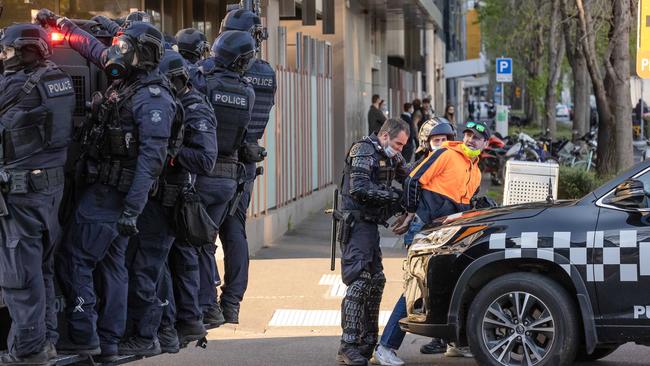
Using the best comparison of deaths per million of population, the American figure is 2478, Britain 2152, Canada 786 and Australia 83. Most Australians were aware of the superiority of Australia’s performance but, unsurprisingly, this did not alleviate the intensity of public angst.
But the pandemic was the ultimate signpost to a bigger story – the age of disruption.
The digital impact of Big Tech, the revolution of social media, the cultural transformation of identity politics, the relentless march to decarbonisation and the strategic challenge from the rise of China contributed to a sense not just that individuals were surrendering control of their lives but that the idea of progress sustained since the arrival of the industrial revolution was succumbing to confusion, challenge and redefinition. This dislocation runs through the politics of the West.
Australia, despite its difficulties, is still faring better than either of its major democratic partners, the US and Britain – yet challenges are putting huge strains on democratic models and leadership. Western political systems are starting to buckle under the fusion of internal disharmony and complex problems. The conformity of the industrial age is being replaced by the social fracturing and individual impatience of the digital age.
Joe Biden has a dangerous 55 per cent disapproval rating at the end of his first year and looms as an enfeebled US President operating an outdated governing model; Boris Johnson’s leadership in Britain is undermined by carefree blunder, hypocrisy and internal revolts; Scott Morrison, riding high at the end of last year, sustained devastating blows this year to his authority and trails Labor’s Anthony Albanese 53-47 in two-party-preferred terms as the election approaches.
Effective leadership across democracies is compounded by rising public distrust of the system, cultural divisions that destroy shared values, and loss of confidence in the major parties. Too often the centre cannot hold. Covid had a laser-like ability to identify the weak links in great nations – China’s secrecy and America’s governing ineptitude.
Running second to Covid this year has been the sharp lift in geo-strategic tensions with its pressure points – the US rout in Afghanistan, Chinese leader Xi Jinping’s command and assertions, and his continued yet futile economic coercion of Australia. Morrison secured a long-run initiative with the AUKUS agreement under which the US and Britain agreed to support Australia’s development of a nuclear-powered submarine fleet, a generational task that will test Australia to the limits of its capacity.
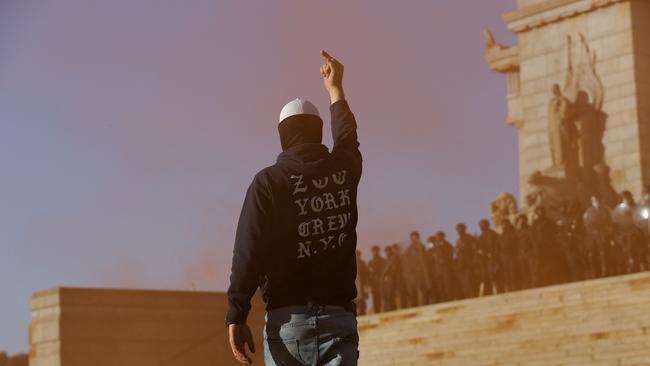
This success highlights the strategic dilemma now facing Australia – Beijing’s campaign to break our will saw Morrison deepen our ties with the US, yet this coincides with domestic traumas in the US that must raise serious doubts about its reliability as our indispensable alliance partner.
The year 2021 is filled with massive contradictions and new directions.
It was the year the Coalition government completed the biggest fiscal support in our history, a $337bn spend to save the economy – yet Morrison now pivots to announce governments must retreat to re-empower individual Australians; it saw Morrison in a mix of persuasion and intimidation drive the Coalition to support net-zero emissions at 2050, recasting climate policy and politics; and it saw the Australian public demanding ever more security in an unpredictable age – health, economic and military security – but a federal budget loaded with deficits guarantees tough, binary choices are going to be needed since politicians cannot satisfy the scale of public expectations.
In Australia, high ratings for government handling of the virus last year eroded with mounting distrust this year as the Morrison government was trapped between the slow rollout of vaccines and the explosion of the Delta variant. Morrison was subject to a media killing field for months.
One of his fatal lines, delivered back on March 11 and repeated many times was: “It’s not a race, it’s not a competition.” But it was a race against Delta and, as NSW and Victoria went into lockdown, Morrison took much of the blame for vaccine shortages.
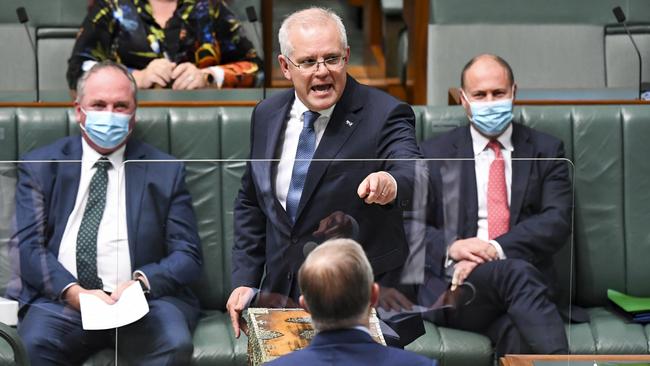
Covid, however, is myriad contradictory effects. By the year’s end vaccination had turned into an Australian triumph with a 16-years-and-over fully vaccinated national rate of more than 90.5 per cent (with NSW approaching 95 per cent) and a one-jab national rate touching 94 per cent. Australia defeated Delta but Morrison paid a high political price along the way. Now the saga is being replayed with boosters needed against Omicron.
The pandemic took the federation to a crossroads in its history. Because Covid-19 was a public health emergency the principal responsibility – after the Morrison government closed the international border early last year – lay with premiers and state health officers. They ran on two big ideas – closed borders and lockdowns, in an initial bid to keep the virus extinct in the island homeland. The political issue in 2021 was the Prime Minister versus the premiers. Morrison had created a national cabinet but the premiers still called the shots. It was a reversal of the norm; this time the advantage lay with the premiers. Morrison had to fund their lockdowns. The fracture within the nation went deep – between state and federal, state and state, conservative and progressive.
The pandemic turned the premiers into political giant-killers. It invested each premier with an unrivalled status in their home state, saw populist exploitation of the virus, turned the premiers of the four main states into national figures and diminished the sense of Australian nationhood.
The ALP premiers dominated. The popularity they enjoyed in their states meant Morrison had to back away from any constitutional or political challenges to their policies, a manifest weakening of his authority as Prime Minister.
With a protectionism matched only by his arrogance, West Australian Premier Mark McGowan imposed an isolationism on the West, saw his approval rating hit 90 per cent and all but eliminated the Liberal Party at the state election.
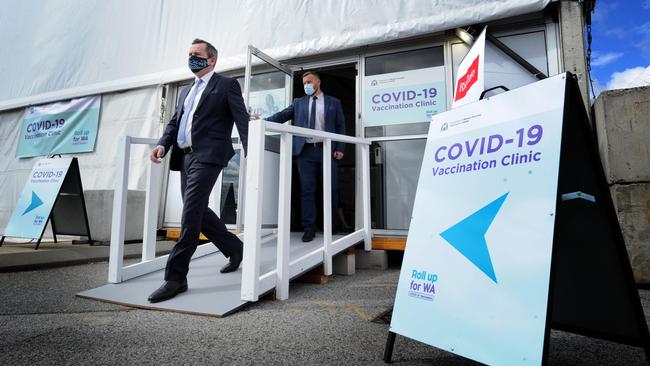
In an astonishing feat of repression, Victorian Premier Daniel Andrews imposed the world’s longest and punishing city lockdown on Melbourne, polarised his state and revealed that the heart of progressivism lay in the state power overriding human rights. The protests in Victoria were bitter but Andrews remained politically dominant, relying on remarkable public tolerance of lockdowns.
Queensland had its own story with Annastacia Palaszczuk, inept and populist, repeatedly exposed for running preferential border rules for the better-off, devoid of compassion but notorious for the most disreputable line of the pandemic, declaring that Queensland hospitals were for Queenslanders. There seemed no limit to the selfish populist pitches from premiers.
In NSW, Gladys Berejiklian had the courage to avoid harsh measures and provoked public denigration from her ALP counterparts. But when faced with the Delta variant, Berejiklian imposed NSW lockdowns and was then forced to resign over Independent Commission Against Corruption revelations against her. But the new, youthful NSW Premier, Dominic Perrottet, an unabashed champion of easing restrictions, risked pushing his relaxations too far at a danger to public health and the economic reopening he desperately espoused.
Has Covid fundamentally changed the Australian federation back towards the states? During 2021 opinion on this issue fluctuated wildly. It is hard to believe that premiers, having tasted their new power, will easily abandon it. Yet John Howard offered plain-talking reassurance. “I believe we are not seeing a fundamental change,” he told this newspaper. “We should be mature enough to realise these are powers the states have always had but never had to use before.”
Howard rejected as “bunkum” talk that the federation was breaking down.
High vaccination became the platform for Morrison’s re-election agenda. In late 2021 his message became “living with the virus”, opening the economy and returning life to normal. He called it: “Putting Australians back in charge of their own lives.” Morrison rejected any more lockdowns against Omicron and his Treasurer, Josh Frydenberg, told the premiers: “They must show common sense. We need the premiers to stick by the national plan.”
The week before Christmas saw the nation in hazardous balance, keen to move forward yet still worried. People flooded testing stations, the booster rollout assumed a new urgency, but the public was travelling and spending. “We’re on the road back,” Morrison said. “We’re on the right track. But we know the future remains challenging.”
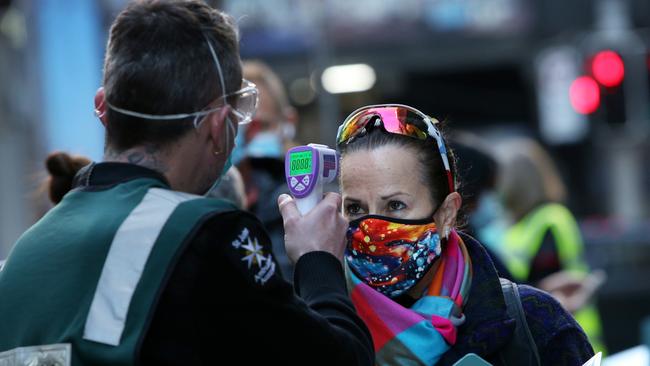
The political beneficiary of the year was the federal Opposition Leader, who began this year with whispers about his leadership but finished as the poll favourite to become prime minister. If Albanese arrives in the Lodge it will have been delivered courtesy of the 2021 horror year for Morrison. Labor’s lead is driven by disappointment with Morrison, not endorsement of Albanese. Judgment on Albanese has been deferred until next year but at some point the public will be required to make that judgment.
Morrison needs another “miracle” to win, but his self-belief remains strong. If Morrison is defeated, Australia’s cycle of revolving-door prime ministers will continue with none of the last five – Kevin Rudd, Julia Gillard, Tony Abbott, Malcolm Turnbull or Morrison – having been re-elected. This would verify the crisis of confidence surrounding national governance in Australia, a situation that makes optimum policy results a complete impossibility.
The further risk is that the legacy of 2021 may be a minority government in 2022 – if Covid has the diabolical consequences of weakening Morrison but not empowering Albanese. Both major parties suffer from the ongoing fragmentation of their core vote yet their minor party rivals are weak and fraudulent; witness the offerings from Clive Palmer and Pauline Hanson. The Greens are increasingly discredited as extremists and offensive, stuck on about 10 per cent of the vote and going nowhere, while the “Voices of” groups, the morally righteous independents, have their own integrity problem by declining to tell the truth about what they are, namely an anti-Coalition pressure group.
Provided Omicron is contained the good news from late 2021 is that Australia’s economy rose from the ashes of its struggle with Delta. Unemployment has fallen to 4.6 per cent, growth is surging, consumer confidence is mounting and job creation is on a roll. The legacy is deficits and debt that will run into the decade of the 2030s, a generation-long burden. Australia has truckloads of problems down the track but an impatient culture and electorate have a strictly short-run focus and the economy is likely to deliver good news on that timetable.


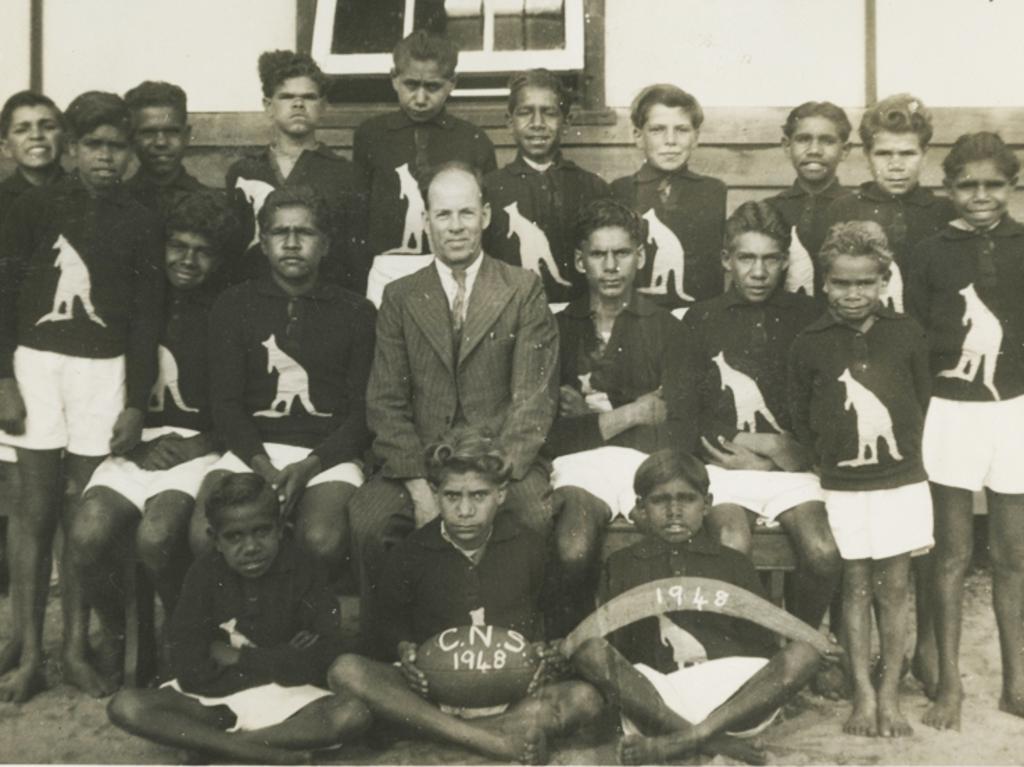
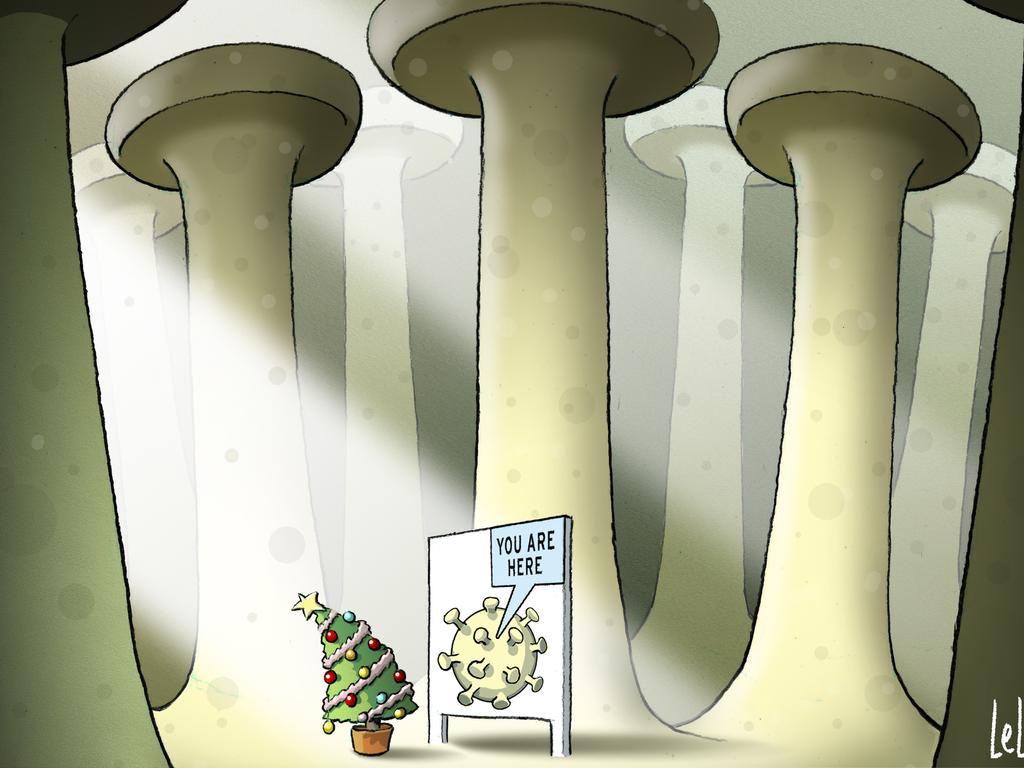

It has been a year of punishment for most Australians – a year even tougher than 2020 with Covid running its own course, people rethinking their lives, gaining a better appreciation of family and personal ties, prioritising health security and reassessing what matters to them.